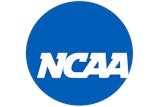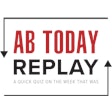As it braces for an NCAA investigation into benefits lavished on student-athletes by convicted Ponzi schemer Nevin Shapiro, the University of Miami on Monday released its biannual newsletter to boosters outlining new, stricter rules regarding contact with players.
NCAA rules permit student-athletes to receive "an occasional meal from a representative of athletics interests on infrequent and special occasions." Miami boosters have been allowed this much latitude only if they cleared such contact with the university's compliance office first. But no more.
In an e-mail titled "Change in Occasional Meal Policy," the school informed recipients that "effective immediately, boosters are no longer permitted to entertain student-athletes with an occasional meal and boosters are prohibited from hosting current University of Miami student-athletes in their homes or other locations." Moreover, boosters are not to provide student-athletes with any food, drink, transportation (car or ride) or other extra benefits, including cash, credit, discounts, tickets and clothing. The newsletter also reminded boosters not to communicate with prospective student-athletes via phone, text, e-mail or written letter.
Shapiro, who is currently serving a 20-year prison sentence, claims he provided extra benefits to more than 70 athletes, often hosting gatherings with Hurricane players at his Miami Beach waterfront mansion.
Extra benefits is an issue that has long plagued schools regardless of size and national standing. Harry Rothwell, a Hurricane Club member who owns a sporting goods store near the U of M campus, fears the stricter rules at Miami will have a chilling effect on student-athlete support. "Most of us follow the rules and have had great experiences getting to know these student-athletes over the years, and I think it's sad that by restricting our interaction so much now it will dehumanize the athletes, and they'll just become helmets running across the field and basketball jerseys shooting jumpers," Hurricane Club member Harry Rothwell, who admits to hosting athletes for occasional meals over the past 20 years, told the Miami Herald. "There will be less reason for boosters to pay money to come out if they don't get to know the athletes personally and learn their stories."





































